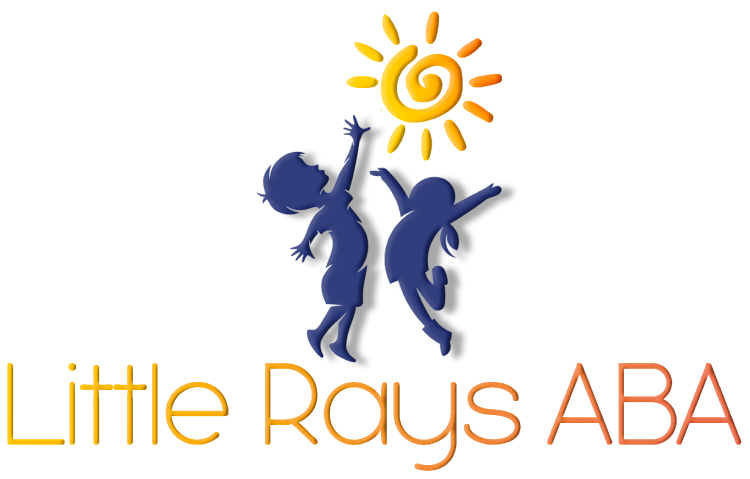
Your Ultimate RBT Exam Study Guide and Practice Test
Key Highlights
- The RBT exam evaluates your knowledge and application of behavior analysis principles, including behavior measurement, skill acquisition, and professional conduct.
- Effective preparation involves creating a structured study guide and employing strategies like managing time efficiently and practicing with mock exams.
- Familiarizing yourself with the key areas of the RBT task list ensures a comprehensive understanding of essential concepts.
- Practice tests and study materials provide an authentic simulation of the RBT exam format.
- Managing test anxiety and adopting effective exam techniques will boost your confidence on the exam day.
Introduction
The Registered Behavior Technician (RBT) exam is a key step in getting certified in behavior analysis. If you are just starting to study or looking for a clear plan, your success relies on hard work. This complete study guide provides you with useful strategies, practice questions, and mock exams to help you do well on the competency assessment. Getting this certification confirms your skills and allows you to better support people, especially those with autism, to reach important goals.
Exam Preparation Strategies
Proper planning and smart strategies are key for getting ready for the RBT exam. Begin by learning the content areas from the RBT task list. Use this knowledge to shape your study plan. Also, create a study guide that fits your schedule and highlights your strengths and weaknesses.
In addition, managing your time well and practicing with sample questions will improve your skills for taking the test. This preparation stage is important for covering all the areas you need to learn. It helps make sure you are well prepared for the actual test.
Developing a Comprehensive Study Plan
Building a clear study plan is essential for doing well on the RBT exam. Start by breaking the RBT task list into smaller sections. Then, set study times for each part. Get to know topics such as behavior measurement, skill acquisition strategies, and professional conduct. Having a clear plan can lower stress and help you focus better.
Sticking to a routine is important. Set aside time each day or week for studying to keep making progress. Add review sessions to help remember what you've studied and to find areas where you might need improvement. Use tools like flashcards, study guides, and practice tests to help you remember things better.
Make active learning a big part of your study method. Write notes on tough topics, and watch videos that explain things if you need help. Breaking subjects into smaller goals makes studying less tough and helps you understand the material and prepare well for the exam.
Effective Time Management Techniques
Time management is very important for your success in RBT exam prep. You need to pay attention to how you spend your time. Start by planning your study hours and make sure to stick to them. Don't cram all at once. Instead, spread your studying over weeks to learn steadily.
When you study, use these tips:
- Set priorities: Focus on tough topics first, like behavior assessment or data analysis.
- Eliminate distractions: Find a quiet place to study. You can use apps to help block interruptions.
- Take purposeful breaks: Try the Pomodoro Technique. Study for 25 minutes, then take a 5-minute break.
- Track progress: Keep an eye on what you have learned to stay motivated.
- Adjust your plan: If something isn’t working, change your schedule or study methods to improve.
Using good strategies will help you focus better and make the most out of your study time.
Key Concepts and Areas to Focus
Success on the RBT exam depends on knowing the main topics listed in the RBT task list. It’s important to understand key areas such as behavior assessment and skill acquisition techniques. This knowledge will help you when taking the exam.
Set aside specific study time for behavior measurement, documentation rules, and ethical practices. Each topic will improve your ability to handle real-life situations in behavior analysis. By focusing on these important areas, students can boost their skills and be ready for the exam.
Understanding Behavior Assessment and Measurement
Behavior assessment and measurement are very important for the RBT exam. They focus on basic analytical techniques. One important thing to understand is how to collect and read data correctly. Get to know methods like frequency recording, interval recording, and duration tracking. These are often part of the exam.
The RBT task list also highlights the need to understand graphing. Learn how to use graphs to analyze behavior trends. This will help you make better decisions in interventions. Knowing these skills is key for collecting good, reliable, and valid data.
Finally, practice analyzing different situations. For instance, try linking behavior patterns to possible causes. This will help you find effective solutions. By improving these skills, you will be ready to handle questions about behavior assessment and measurement on the RBT exam.
Essentials of Skill Acquisition Techniques
Skill acquisition techniques are key for creating effective learning outcomes in behavior analysis. The RBT task list includes designing and using strategies to improve a subject's skills. Methods like task analysis, prompting, and reinforcement are very important.
To learn these techniques well, plan how to use them. You can make practice scenarios focusing on the following:
| Technique | Key Focus |
|---|---|
| Task Analysis | Breaking down complex tasks into smaller steps that are easy to teach |
| Prompting | Giving hints or help to encourage the right answers |
| Reinforcement | Making good behavior stronger with positive rewards |
Looking at examples of skill acquisition methods helps reinforce learning. For example, splitting a task like handwashing into steps—turning on the water, putting on soap, and rinsing—makes it easier to learn. With careful study, skill acquisition can be simple and fun.
Conclusion
In conclusion, getting ready for the RBT exam needs a smart plan and focused study. Make a clear study schedule. Manage your time well and focus on important ideas like behavior assessment and skills learning methods. This will help you do better on the test. Keep practicing and reviewing. This builds your confidence and helps you remember important information. Stay motivated and look after your health during this time. If you want to improve your studies, check out our practice test resources to help you prepare fully for the RBT exam ahead.
Frequently Asked Questions
What is the format of the RBT exam?
The RBT exam has 85 multiple-choice questions. These questions come from the RBT task list. The exam tests you on important topics like behavior measurement and skill acquisition. Mock exams are a great way to get used to the format and types of questions you will find on the real test.
How often should I take practice tests?
Make sure to add weekly practice tests to your study routine. Doing these tests often helps you check how you are doing and how well you remember vocabulary. Practice exams based on the specific topics in the RBT study guide can help you be more ready. They also strengthen important ideas for you effectively.
What are the best resources for RBT exam preparation?
Some great resources to check out are the RBT task list, detailed study guides, online courses, and free RBT exam materials. Books like "Registered Behavior Technician Study Guide 2023–2024" by Newstone Test Prep can help too. Mock exams created by experienced BCBAs are also useful for your preparation.
Are there any techniques to reduce anxiety before the exam?
Using good ways to lower anxiety can really help. Deep-breathing exercises, thinking positively, and getting enough rest the night before are important. You can manage stress better by pretending to be in an exam while you prepare. Having confidence in the RBT study guide material can boost your belief in yourself. Also, remember to take breaks. These steps can greatly reduce your stress.
How can I improve my time management during the exam?
To manage your time well, start by figuring out how hard each section is. Set a time limit for each question. If you find a tough question, skip it at first and come back if you have time later. Regular practice with practice questions and using timing tools will help you get better at this skill.
SOURCES:
https://www.atcconline.com/blog/top-3-rbt-exam-study-techniques
https://behaviortechcourse.com/ace-your-rbt-exam-with-these-study-strategies/
https://www.bacb.com/wp-content/uploads/2020/05/RBT-2nd-Edition-Task-List_240830-a.pdf
https://rbtpracticeexam.com/rbt-exam-study-guide/assessment/
https://rbtpracticeexam.com/rbt-exam-study-guide/measurement/
https://psychcentral.com/pro/child-therapist/2017/06/registered-behavior-technician-rbt-study-topics-skill-acquisition-part-1
Related Posts





